Basic arithmetic practice Numbers Worksheets for Ages 5-8
5 filtered results
-
From - To
Enhance your child's math skills with our Basic Arithmetic Practice Numbers Worksheets designed for ages 5-8. Perfect for young learners, these worksheets cover fundamental concepts such as addition, subtraction, counting, and number recognition. Featuring engaging activities and colorful graphics, each worksheet aims to make learning enjoyable while building a strong mathematical foundation. Tailored to suit various skill levels, they promote critical thinking and problem-solving abilities. Ideal for both classroom and home use, our resources provide a comprehensive approach to mastering basic arithmetic, setting your child on a path to success in math. Download and start practicing today!
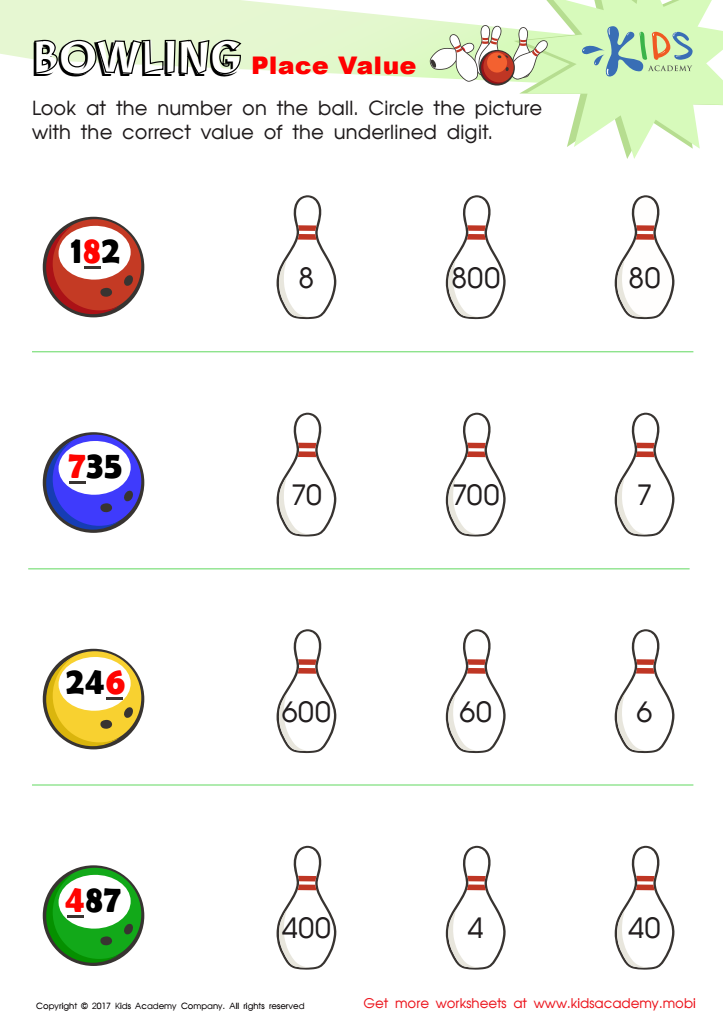

Place Value Worksheet
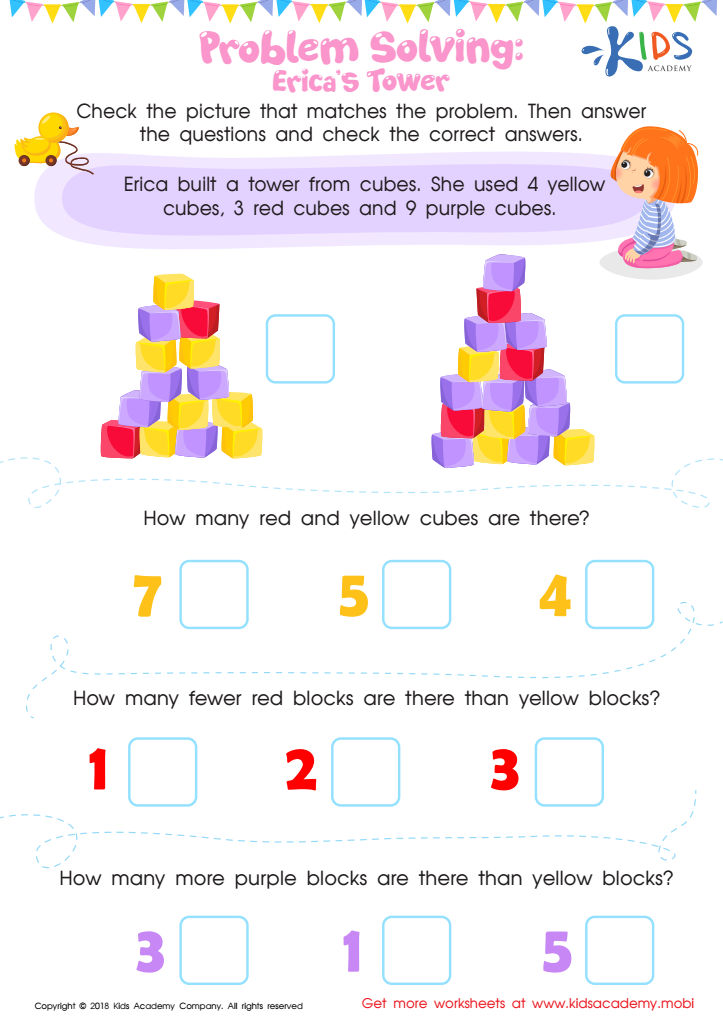

Problem Solving: Erica's Tower Worksheet
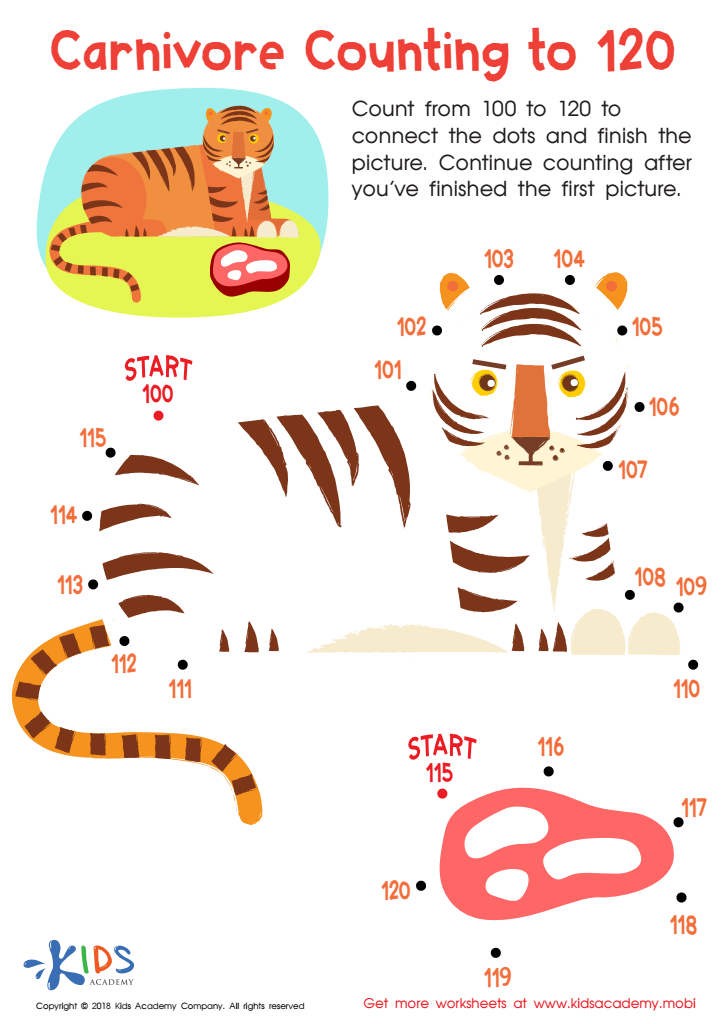

Carnivore Counting to 120 Worksheet
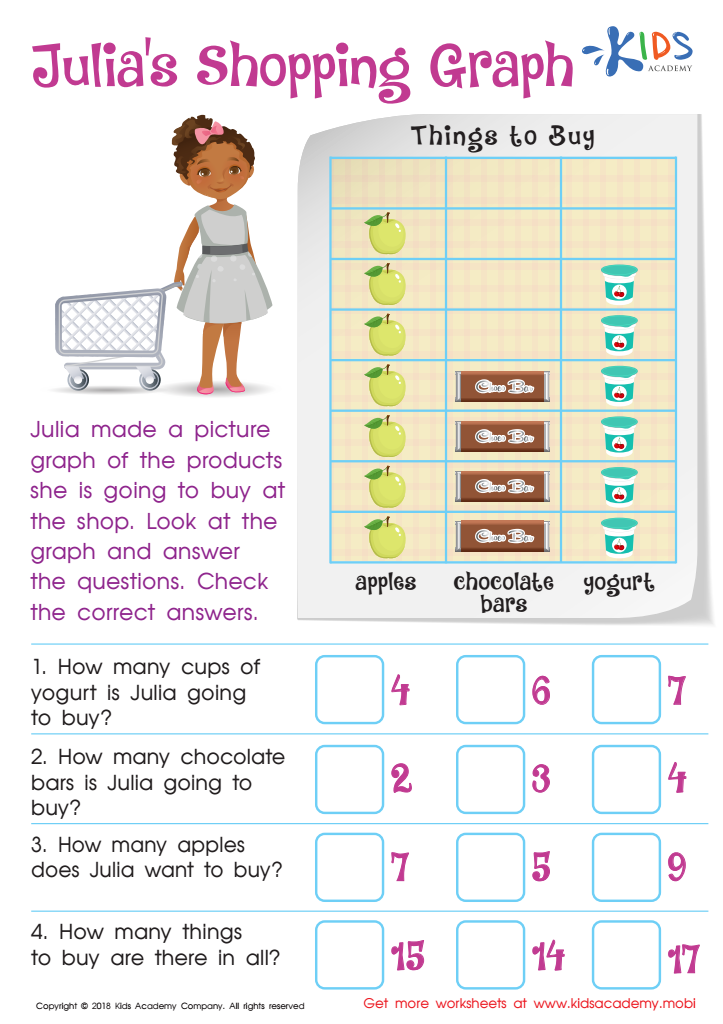

Julia's Shopping Graph Worksheet
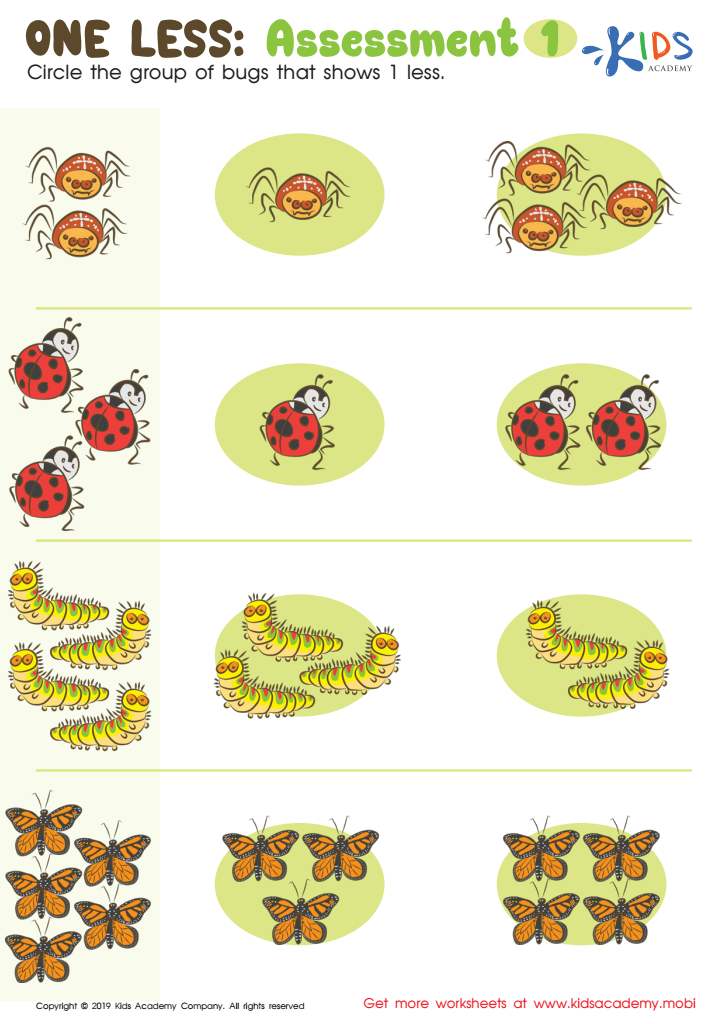

One Less: Assessment 1 Worksheet
Basic arithmetic practice in early childhood is foundational for a child's cognitive and academic development. For ages 5-8, these formative years are crucial in shaping their overall understanding and love for learning. Engaging in arithmetic exercises helps children develop critical thinking and problem-solving skills, which are essential not only in math but in everyday life situations as well.
At this age, children's brains are highly receptive and able to grasp concepts quickly. Regular practice with numbers builds a strong grasp of basic math skills such as addition, subtraction, multiplication, and division. Mastery of these skills boosts a child's confidence, making them more willing to tackle challenging problems in the future. Moreover, arithmetic proficiency is linked to improved performance in other subjects, such as science and engineering, where math forms the basis of most topics.
Arithmetic practice also enhances concentration and attention to detail, skills that are beneficial beyond the classroom. For parents and teachers, fostering a love for math early on sets children on a path of curiosity and continuous learning. As children succeed in arithmetic, this sense of accomplishment generates a positive feedback loop, encouraging them to approach new challenges with the same enthusiasm and resilience. Thus, basic arithmetic practice is not just about learning numbers; it’s about building a foundation for lifelong educational and personal success.
 Assign to My Students
Assign to My Students





















